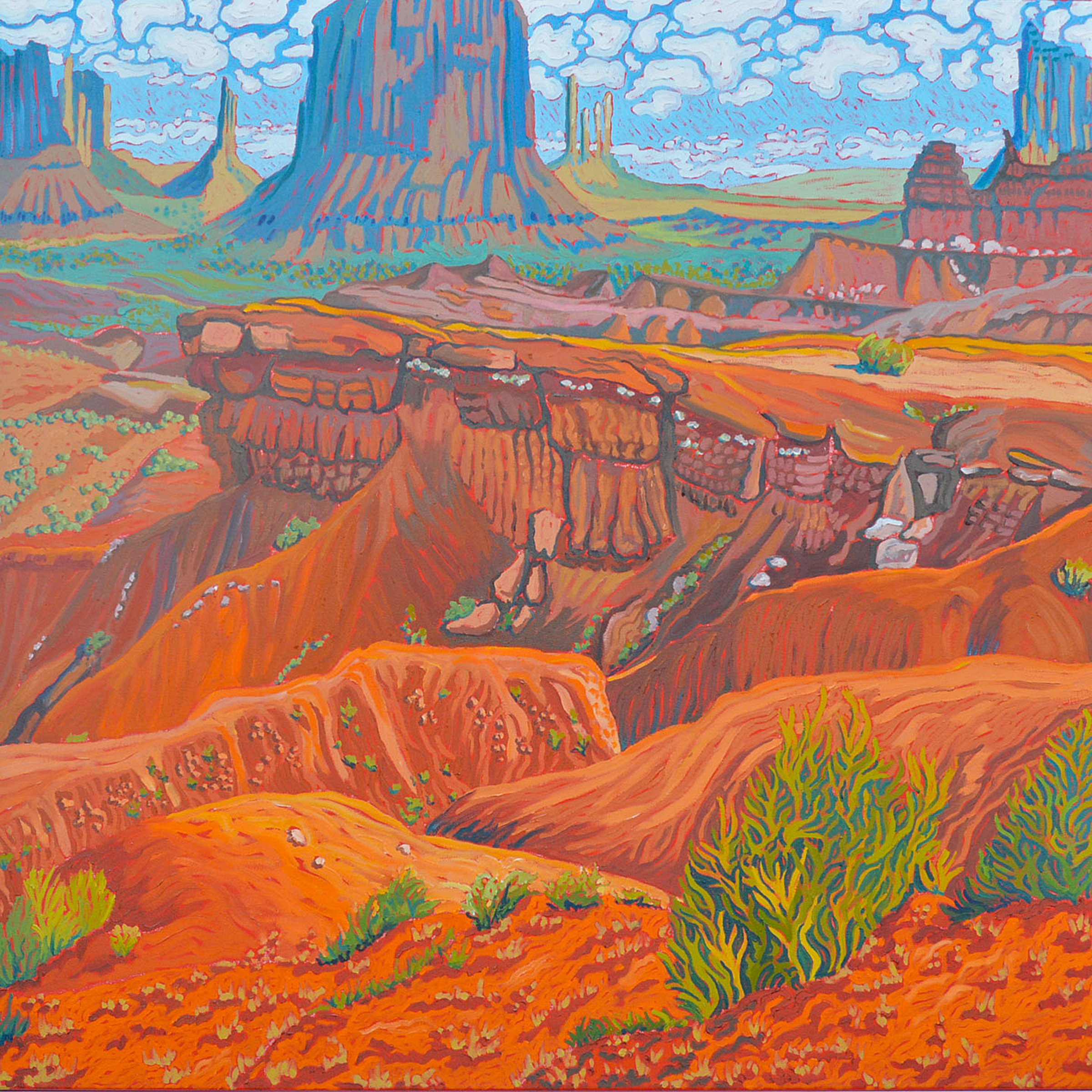“Monsoon Summer from the Loneliest Road” by Kathleen Frank
By Miriam Akervall
I wanted to forest,
to stick my dogs into death
for personal heat,
but trees are also bodies.
I couldn’t stand their bleached joints
saluting from the duff.
Paved over, reticent.
Bending toward a Steer’s Head,
I feel as many here
as below Babyn Yar’s skeleton suburb,
bodies staked by soccer cleats
and television towers.
My own great mirrors are driven
with holes.
Memory is a raking chain
of small sharp teeth
and mouthy gullets. Chapped,
neck wrapped. I wanted to cut
with the Great American Tooth.
The first tree I felled was already dead,
charcoal snag sticking up
like a wick in black wax.
The last took hours,
I sighted, chopped,
it sailed down entrails
of brush. The sound came after
the ground shook.
Miriam Akervall is a Swedish American first year MFA candidate in poetry at the University of Idaho. Their work has appeared in Volume Poetry, Stone Journal, Voicemail Poems and elsewhere. They live in Moscow, Idaho.






